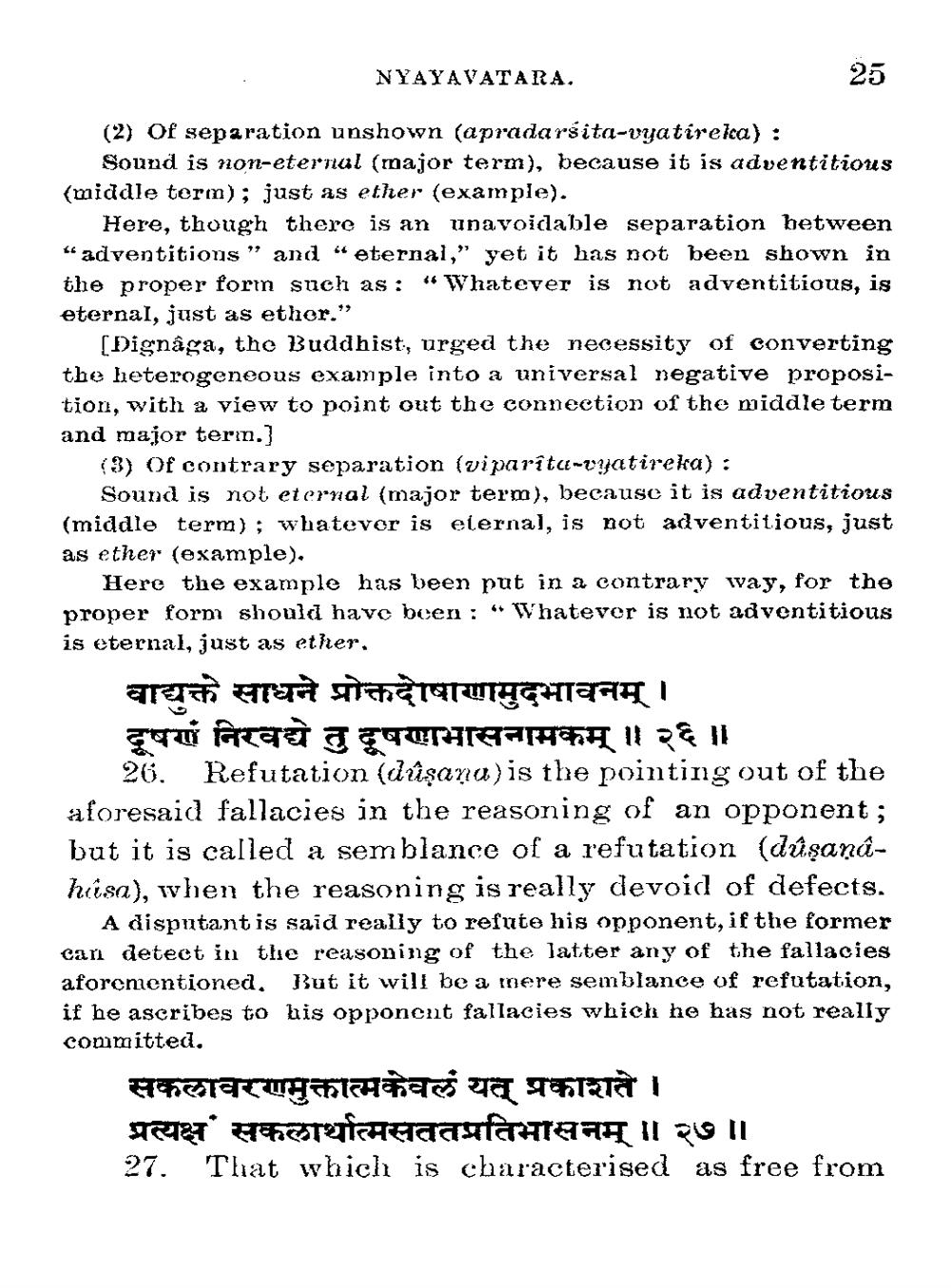________________
NYAYAVATARA.
25
(2) Of separation unshown (apradarŝita-vyatíreka) : Sound is non-eternal (major term), because it is adventitious (middle term); just as ether (example).
Here, though there is an unavoidable separation between "adventitions" and "eternal," yet it has not been shown in the proper form such as: "Whatever is not adventitious, is eternal, just as ether."
[Dignaga, the Buddhist, urged the necessity of converting the heterogeneous example into a universal negative proposition, with a view to point out the connection of the middle term and major term.]
(3) Of contrary separation (viparita-vyatireka) :
Sound is not eternal (major term), because it is adventitious (middle term); whatever is eternal, is not adventitious, just as ether (example).
Here the example has been put in a contrary way, for the proper form should have been: "Whatever is not adventitious is eternal, just as ether.
वाद्यते साधने प्रोक्तदोषाणामुदभावनम् ।
दूषणं निरवद्ये तु दूषणाभासनामकम् ॥ २६ ॥
26. Refutation (dûşana) is the pointing out of the aforesaid fallacies in the reasoning of an opponent; but it is called a semblance of a refutation (dûşanâhúsa), when the reasoning is really devoid of defects.
A disputant is said really to refute his opponent, if the former can detect in the reasoning of the latter any of the fallacies aforementioned. But it will be a mere semblance of refutation, if he ascribes to his opponent fallacies which he has not really committed.
सकलावरणमुक्तात्मकेवलं यत् प्रकाशते ।
प्रत्यक्ष सकलार्थात्मसततप्रतिभासनम् ॥ २७ ॥
27. That which is characterised as free from




